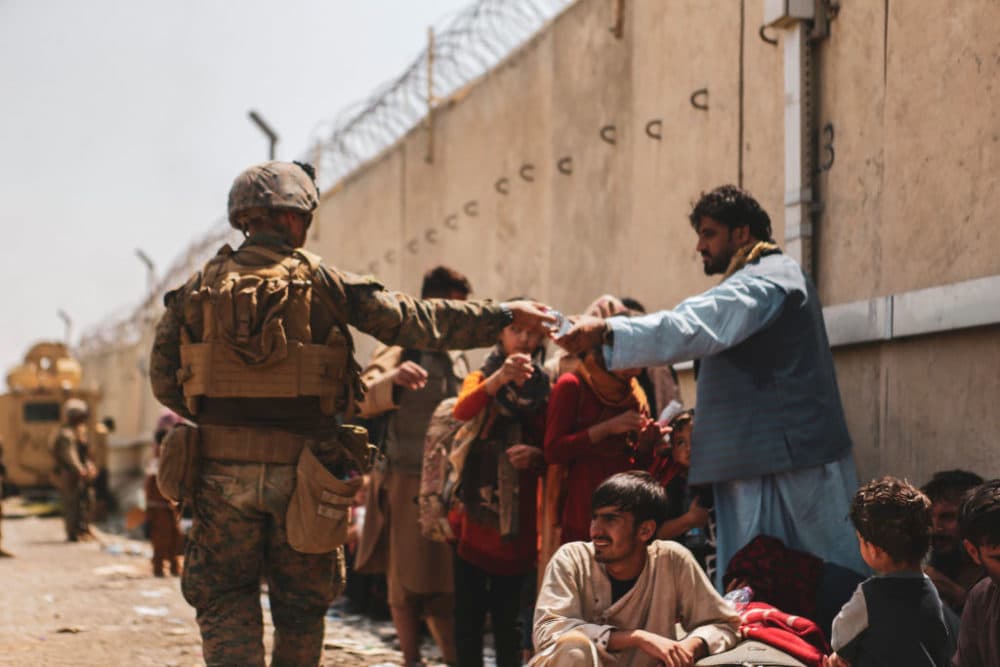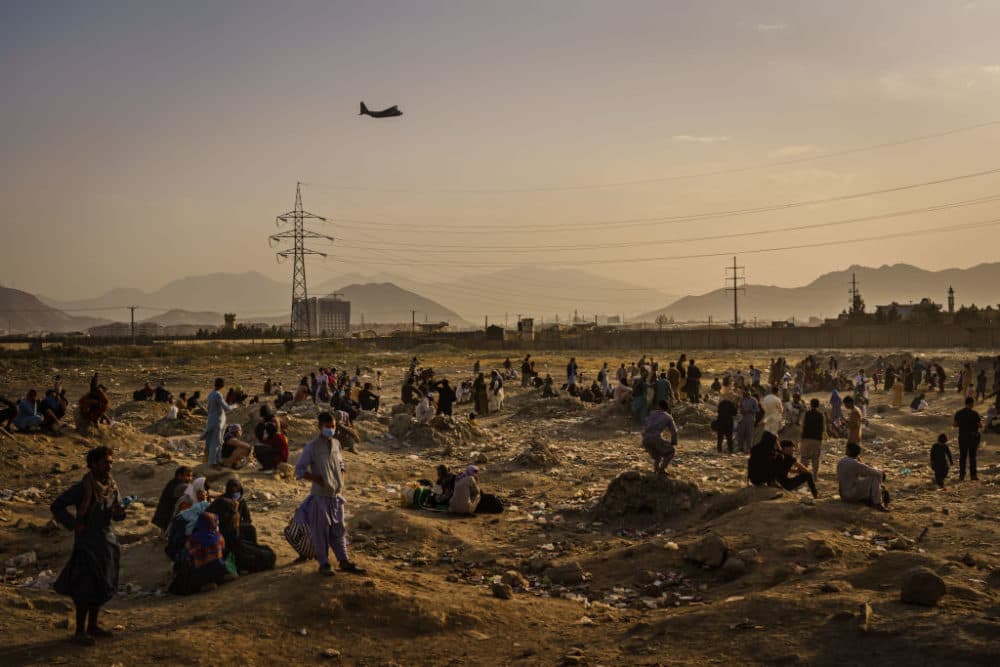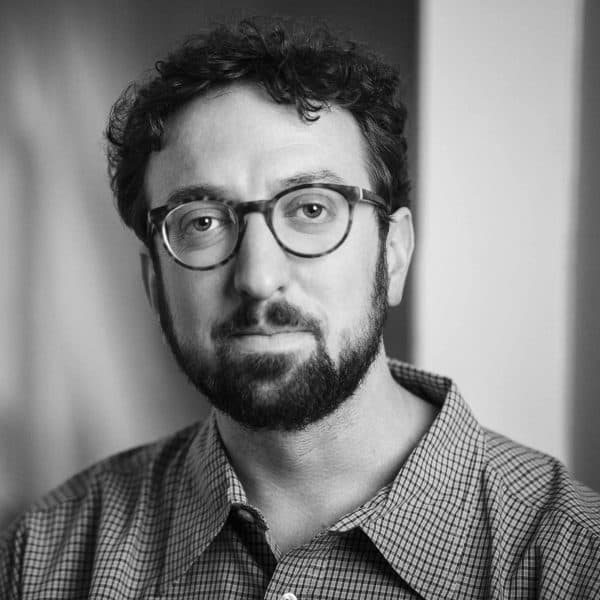Advertisement
Commentary
If Only Your Outrage On Afghanistan Matched Your Commitment To Serve

Twenty years ago, I was the perfect age to join the military. But I made the choice not to enlist, even as others shipped off, first to Afghanistan, then to Iraq, and often back and forth between the two.
Perhaps choice sounds too intentional. The path was laid out for someone like me. I never gave it a second thought. I was a student at an elite university. My parents were comfortable. I went about my life and so did millions of people just like me.
Each of us met criteria that enabled our non-participation in these wars; criteria so broad that it is easier to describe what we were not. We were not susceptible to having our patriotism abused by the architects of these wars. (That was a matter of luck.) But we also possessed a sense of destiny that did not necessitate a military life. That can sound lofty, but it means something practical: We were not poor. We were not immigrants. We were not minorities. We did not need what the military could provide on the other side of service.
Such differences should not allow one group of people to opt for a future that others never have to consider, but it was easy to do because there was no draft.
Today, as pundits and historians wring their hands about our defeat in Afghanistan, their scant mention of this fact proves exactly why our wars persist, enriching military contractors and their political allies even as we stumbled through years of quagmire. Without a draft, they have been waged “out of sight and out of mind” for most Americans.
This point is rightly confusing to young people. Why do we talk about a perpetual state of war as though it was covert, if it was launched and supported right out in the open?
We were not poor. We were not immigrants. We were not minorities. We did not need what the military could provide on the other side of service.
The reason is that those who did not enlist never had to consider the costs. We pursued our lives in the belief that non-participation in combat meant we did not have a role in its furtherance. The result is that one group lives these wars as active conflicts every day. The other has talked about them in the past tense for more than a decade.
Historians will rightly point out that when we have had drafts, they have been implemented unfairly. This was the case with the Vietnam War. But having one at all meant that the center of gravity – the sense that we knew equal service was what we were supposed to have — was never ambiguous. Service was expected. It took effort to be assured that one wouldn’t have to do it, and the draft’s terrible inequalities were a crucial part of the anti-war movement.

In my own time, no such thing is the case. Those of us who did not serve never had to interact with the military, even if simply to declare, “I am a pacifist.” We were able to take a separate form of citizenship. During these years, we’ve performed a cynical kind of virtue signaling, in which many of us act as though we opposed the wars, when we actually bought the opportunity to forget them.
Quite literally, we bought the forgetting by turning the wars into stories. For charitably-minded book group types, there was the potentially false “Three Cups of Tea.” For closet Islamophobes, there was Kiefer Sutherland’s torture celebration, “24.” For pillaging Kipling-adventurers, there was “Three Kings,” starring George Clooney. And for critics who needed to soothe unsettled voices in their heads, there was “The Hurt Locker,” which left behind a clean conscience and some Oscars. There were ways to buy these wars into unreality for all of us.
Advertisement
On Thursday the trajectory of these recent weeks was altered yet again when at least 13 U.S. service members were killed in a suicide attack outside the Kabul airport. It was one of the deadliest days for the American military in the entirety of the 20-year war. It’s moments like this, when Americans remember that we have been engaged in actual war, that we wake in a tantrum, demanding a storybook ending to very real, abject failure. Pundits, war criminals, apologists, and others shuffle out to deflect and raise the possibility of things that cannot be, like a smooth exit from a tragedy.
There were ways to buy these wars into unreality for all of us.
In actuality, they fear the accountability they hoped to evade with decisions like waging wars without an equal call to service. They hope that all of us will feel so ashamed by our complicity, that we will not call this out for its destructive impact on our democracy.
In my conversations with soldiers, I am frankly amazed that they do not hate us all more. For those who do despise us, the media rarely offers them the chance to say so in the bold and sustained terms we deserve.
Instead, veterans are given a small amount of space to describe their own adversity or express disappointment in our leaders. There’s a familiar ritual now underway, where we convene at the close of the failed War on Terror, armchair criticizing a president who was willing to finally say “stop.”
We are outraged by the scenes on TV. We are demanding a victory. We want a do-over, a better ending, where we are good allies rather than failed occupiers, where we used diplomacy all these years rather than the blunt, savage tools of war. We want it now.
After all, didn’t you hear? There are people suffering in Afghanistan today. We have to do something about that. Someone should do something about that. Someone needs to do better.
